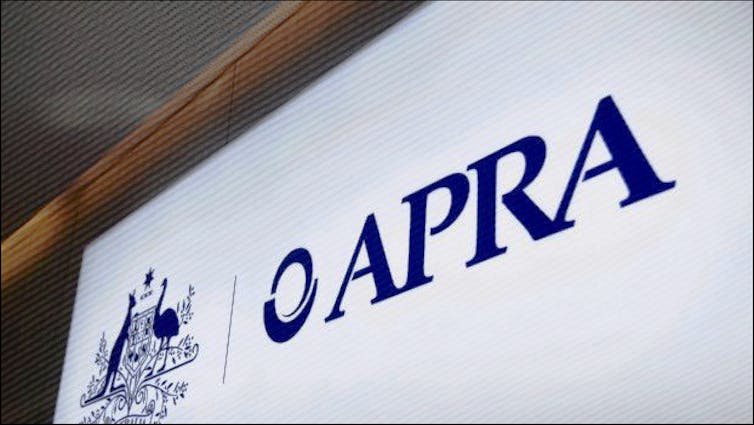There's a bill before the Senate that would make it easier for banks to lend irresponsibly
- Written by Andrew Schmulow, Senior Lecturer, Faculty of Law, University of Wollongong
The Hayne royal commission into misconduct in the banking, superannuation and financial services industry found Australia’s responsible lending requirements were correctly calibrated.
They are set out in the National Consumer Credit Protection Act, which requires lenders to offer credit that is “not unsuitable” for the borrower.
Hayne’s first recommendation (Recommendation 1.1) was that the National Consumer Credit Protection Act “not be amended[1] to alter the obligation to assess unsuitability”.
He saw “no reason to alter[2]” the relevant provision of the banking code.
On releasing the royal commissioner’s report in 2019 Treasurer Josh Frydenberg said he was “taking action on all 76 recommendations[3]” and “going further”.
Until COVID.
COVID the pretext for weakening rules
In September[4], in the midst of the COVID recession, Frydenberg said he was “reducing the cost and time it takes consumers and businesses to access credit”.
Credit was “the lifeblood of the Australian economy”.
He put forward a plan to remove responsible lending obligations from the Act, with the exception of small amount credit contracts and consumer leases where he would impose heightened obligations.
Allowing lenders to rely on the information provided by borrowers would replace the current practice of “lender beware” with “borrower responsibility”.
‘Borrower responsibility’
Frydenberg introduced the legislation in December[5]. On Friday[6] a Senate committee recommended approving it, finding the current consumer protection framework “potentially overly prescriptive”.
Labor and Greens Senators dissented. The bill faces a Senate vote this week[7].
Read more: None of the justifications for weakening bank lending standards quite makes sense[8]
We are members of a consortium of 12 academics who conducted an in-depth analysis[9] of the proposed changes and found they should be rejected. This is why.
Even after Hayne, banks are continuing to fight their obligations[10] and have yet to show they have changed their ways.
The drop in lending since COVID was not caused by overly strict lending laws. Indeed, after a win by Westpac in a court case[11] brought by the Securities and Investments Commission the banks said the laws were set appropriately[12].
Lending standards protect against crises
Consumer protection in the field of finance is important — it contributes to strengthening financial stability.
 Not everyone knows what they are signing.
Jacob Lund/Shutterstock
Not everyone knows what they are signing.
Jacob Lund/Shutterstock
The abusive, predatory and irresponsible lending practices that led to the US subprime mortgage crisis make this clear.
The government’s suggestion that it is fair for borrowers to take responsibility for their own circumstances doesn’t hold water.
No matter how diligent their inquiries, consumers frequently lack the expertise to understand their circumstances and what financial products will be best for them.
For many, almost all of the expertise lies with the banks.
Since COVID, their need for this expertise has become greater, not less.
The government says mortgage brokers[13] will fill this gap under a change proposed by Hayne that will require brokers to act in the “best interests” of their clients.
Read more: Vital signs. It's one thing to back down on Hayne's recommendation about mortgage brokers, it's another to offer nothing in its place[14]
But Hayne’s recommendations were based on the responsible lending requirements being in place.
And Hayne wanted mortgage brokers banned from taking conflicted remuneration, under which they get paid by the banks they steer customers to, a recommendation Frydenberg at first accepted[15], then backed away[16] from.
Brokers continue to be paid by the banks whose products they recommend.
APRA has no history of consumer protection
Hayne also recommended (Recommendation 6.1[17]) that Australia’s “twin peaks” system of regulation continue.
Under twin peaks, the Prudential Regulation Authority (APRA) regulates in order to ensure financial system stability, and the Securities and Investments Commission (ASIC) regulates to protect consumers.
While in his final report Hayne found that ASIC’s appetite for law enforcement had been limited, he found APRA’s had been non-existent.
The upshot is that, not only are the responsible lending requirements to be relaxed, but what’s left of them is to be handed to an agency (APRA) with no track record in the field, at the expense of ASIC.
 Until now, APRA hasn’t done consumer regulation.
APRA
Until now, APRA hasn’t done consumer regulation.
APRA
The government has argued that the Australian Financial Complaints Authority (AFCA)[18] will step up to protect consumers.
But AFCA has to be guided by the law. Without responsible lending laws and regulations, it is unclear what laws AFCA could apply. Thus far, APRA’s standards have been aimed at protecting financial stability rather than consumers.
 The Financial Complaints Authority would rely on APRA for guidance.
Tashatuvango/Shutterstock
The Financial Complaints Authority would rely on APRA for guidance.
Tashatuvango/Shutterstock
In our assessment the proposed changes fail in every respect.
They ignore the key lesson of the global financial crisis: that it was caused by reckless and predatory lending.
Read more: It's about to become easier to lend irresponsibly, to help the recovery[19]
They ignore the findings of the Hayne Commission and other inquiries[20] dating back at least a decade[21].
They will neither properly protect consumers nor create the confidence in the financial industry the post-COVID recovery will need.
The government has named its legislation the National Consumer Credit Protection Amendment (Supporting Economic Recovery[22]) Bill.
A more apt title might have been the “Reducing Consumer Protection Bill”.
References
- ^ not be amended (www.royalcommission.gov.au)
- ^ no reason to alter (www.royalcommission.gov.au)
- ^ taking action on all 76 recommendations (treasury.gov.au)
- ^ September (ministers.treasury.gov.au)
- ^ December (ministers.treasury.gov.au)
- ^ Friday (www.aph.gov.au)
- ^ this week (parlwork.aph.gov.au)
- ^ None of the justifications for weakening bank lending standards quite makes sense (theconversation.com)
- ^ analysis (cdn.theconversation.com)
- ^ fight their obligations (eresources.hcourt.gov.au)
- ^ court case (www.abc.net.au)
- ^ set appropriately (cdn.theconversation.com)
- ^ mortgage brokers (www.abc.net.au)
- ^ Vital signs. It's one thing to back down on Hayne's recommendation about mortgage brokers, it's another to offer nothing in its place (theconversation.com)
- ^ accepted (treasury.gov.au)
- ^ backed away (joshfrydenberg.com.au)
- ^ Recommendation 6.1 (www.royalcommission.gov.au)
- ^ Australian Financial Complaints Authority (AFCA) (joshfrydenberg.com.au)
- ^ It's about to become easier to lend irresponsibly, to help the recovery (theconversation.com)
- ^ other inquiries (www.aph.gov.au)
- ^ decade (www.aph.gov.au)
- ^ Supporting Economic Recovery (www.aph.gov.au)
Authors: Andrew Schmulow, Senior Lecturer, Faculty of Law, University of Wollongong














